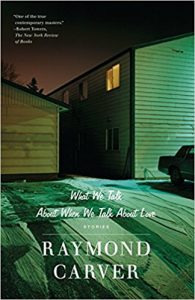The Case of the Missing Editor
 Recently I was reading a novel by a well-known writer and came across the phrase ‘tyres hissing on the blacktop.’ That was fine, but then it was used again a few pages later. Similarly someone was described as ‘all squared away’ and soon after that someone else was also described as ‘all squared away.’ Am I a fussy nit-picker to think that an editor should have picked up these repetitions? They didn’t impinge on my enjoyment but they did just for a moment or two pull me out of the world of the novel.
Recently I was reading a novel by a well-known writer and came across the phrase ‘tyres hissing on the blacktop.’ That was fine, but then it was used again a few pages later. Similarly someone was described as ‘all squared away’ and soon after that someone else was also described as ‘all squared away.’ Am I a fussy nit-picker to think that an editor should have picked up these repetitions? They didn’t impinge on my enjoyment but they did just for a moment or two pull me out of the world of the novel.
It is very easy for these things to slip past an author. I hadn’t noticed in my first novel that people were forever clattering down the stairs or gazing out of windows until the copy-editor pointed it out to me. It is their job to stop these things getting into the novel. But I wonder, just as banks become too big to fail, do writers sometimes become too successful to be edited? This perhaps relates to something I wrote about a few weeks ago about length.
There are some writers who start off reasonably short and get longer and longer. J K. Rowling and P. D. James are examples. The line between richly textured and over-written is one that readers will decide for themselves and for some there can never be too much of a favourite writer. But I do sometimes read a novel and wish an editor had got there first with a red pen.
At the other extreme is the editor who is too anxious to leave their mark.  Raymond Carver was so comprehensively edited by Gordon Lish that there has been debate about how far his short stories remained his own work. I don’t really care. I think they are wonderful and don’t much mind how they got to be wonderful.
Raymond Carver was so comprehensively edited by Gordon Lish that there has been debate about how far his short stories remained his own work. I don’t really care. I think they are wonderful and don’t much mind how they got to be wonderful.
But the absence of the editor is what I am most interested in here. Years ago I was gripped by The Pilot’s Wife by Anita Shreve (which I recommend), but was suddenly pulled up short when the narrator’s aunt literally aged several years overnight. Perhaps after all it is a tribute to the editor’s art that this kind of thing so rarely slips through the net. But it’s still surprising what does. Over to you . . .
10 Comments
Sue Hepworth
June 12, 2018A nice post, Chrissie, but I don’t agree that you can never have too many words if you love the writer. There are some very big names whose writing I love EXCEPT that there is too much of it. Barbara Kingsolver’s latest books are all 200 pages too long for me, for example, and I no longer read her.
(And btw I pointed out to you that your character’s love gazing out of windows.) But your books are never too long for me, Chrissie. They’re just right.
Christine Poulson
June 12, 2018I don’t agree either and with you on Barbara Kingsolver. The Poisonwood Bible was both very long and very good, but I lost patience with the later ones. And thank you for being my most important critic and editor over so many years.
Margot Kinberg
June 12, 2018You’re absolutely right, Christine. Editing is such an important part of a good book, isn’t it? Authors (well, this one – I can only speak for myself) don’t always catch their own mistakes.Fresh, skilled eyes are necessary. It takes extra time, but it’s very much worth it.
Christine Poulson
June 12, 2018Yes, I think it can be very hard to spot one’s own mistakes. You’re just too familiar with what you have written. Editors have saved me from some real bloomers and I also have trusted friends who read what I have written.
moira @ClothesInBooks
June 12, 2018Don’t even start me on the lack of editing in books. (Though I do read a lot of older books, as you know, and plenty of them show a lack of editing: there really wasn’t a golden age as I would like to think…).
I think it is splendid when people write about an era that they did not live through, that is fine. But if it was the relatively recent past, then I would beg publishers to get someone to read the MS who did live in the era. Authors make SUCH mistakes, and they are so avoidable. One of my prime examples (because she is so prominent and well-thought of) is in a Zadie Smith book. She has two working-class women chatting in the street in London in the early 1970s. Both are pregnant, and they say to each other ‘what are you having?’ ie boy or girl. Well anyone could have told her: it would be vanishingly unusual for anyone to know the sex of a baby back then – only in most exceptional circumstances, probably a medical emergency. Mistakes like that pull me up short, they ruin the mood, and they convince me that the author really doesn’t know his or her stuff, they don’t have a feel for the era they are writing about.
Christine Poulson
June 13, 2018Yes! I am so with you on this and I am particularly irked when people write about the 19th century and get it wrong because I know quite a lot about it. Sometimes it’s just that you know that people wouldn’t have thought that way. Sometimes the language is wrong – or as with the pregnancy thing, it’s just an out and out anachronism.
tracybham
June 12, 2018I agree that repetitions like that will take you out of a book although I have heard those criticisms aimed at Rex Stout’s writing and I never even noticed it. (He did not edit and wrote a book in a very short time.) But you have given me a perfect opening to tell you that I just finished Murder is Academic on Sunday and it was lovely and the perfect length. I loved the ending.
Christine Poulson
June 13, 2018Thank you so much, Tracy! I am so glad that you liked Murder is Academic and it is lovely of you to let me know.
Alex
June 19, 2018This is one of my pet peeves, and something that seems to be on the rise in a lot of books I’ve read lately – THE CUTAWAY by Christina Kovac was a prime example. It’s unnecessary, and sloppy editing. But then again, as you point out, maybe some authors no longer get edited in the way they should. Budget and department cuts. It could be as simple as that.
By the way, talking length, have you ever read any of Kathy Reichs early novels, all lengthy and meandering, but still, enjoyable enough. Her latest novels read like treatments where the meat and bones have been stripped away and yes, we’re getting just the bones of a story. I no longer buy or read her work.
Christine Poulson
June 20, 2018I get the impression that editors now expect that agents will have done a lot of the editing before the novel ever reaches them, and I expect financial cutbacks play their part.
I read the early Kathy Reichs but I haven’t been able to get on with the more recent ones, either. I wonder if these changes have anything to do with the fact that her novels have been televised? It’s unusual: novelists tend to get longer as they go on, rather than shorter.